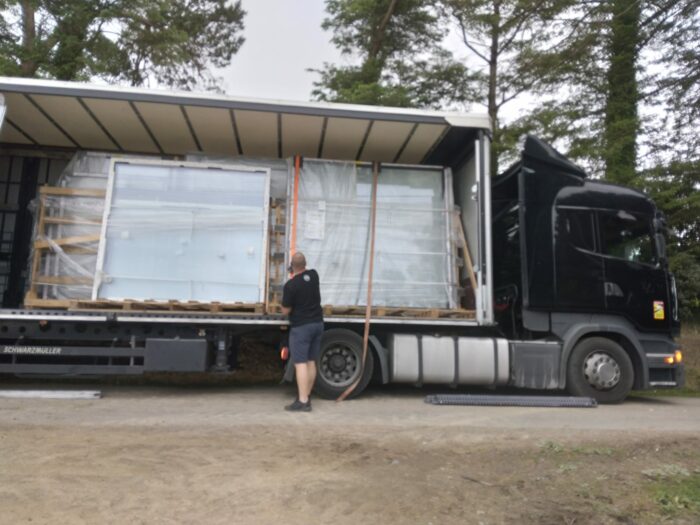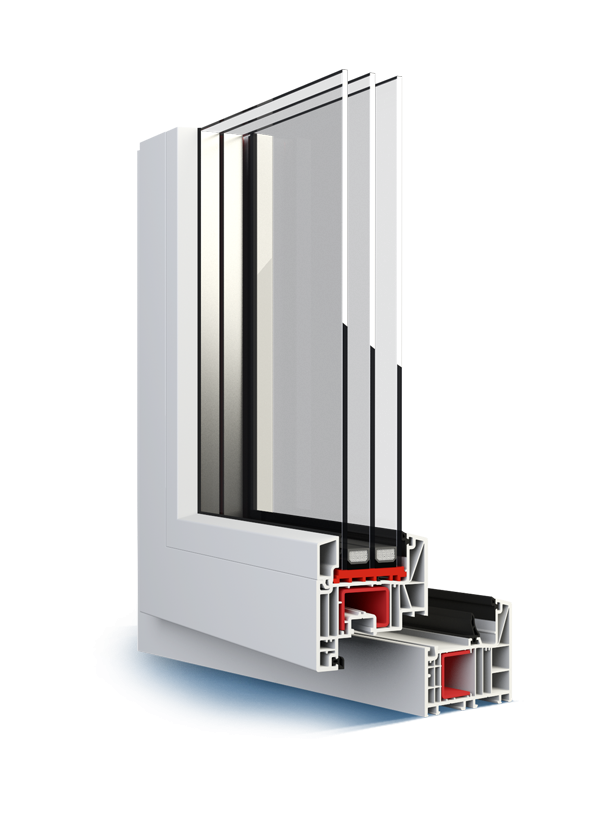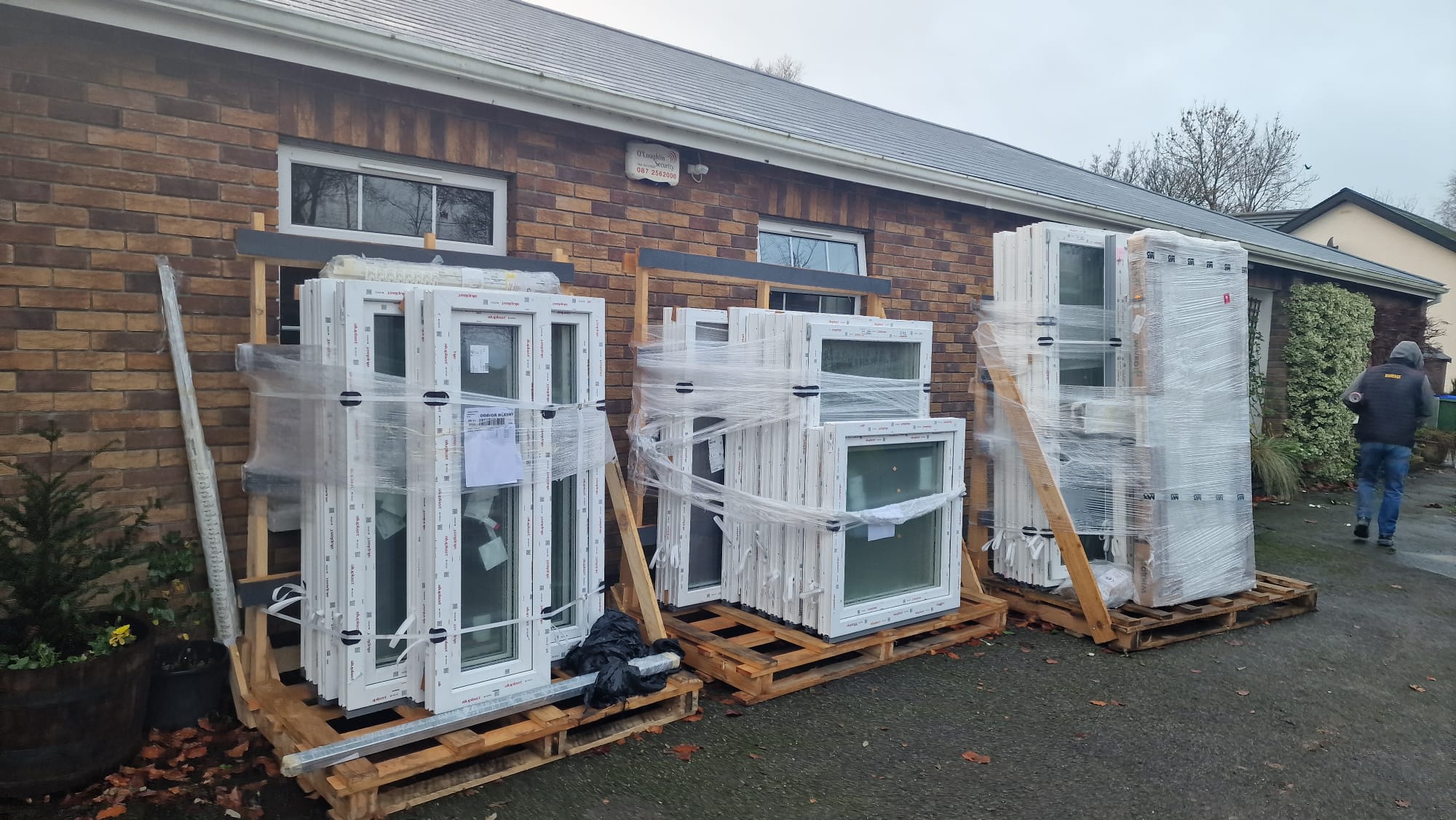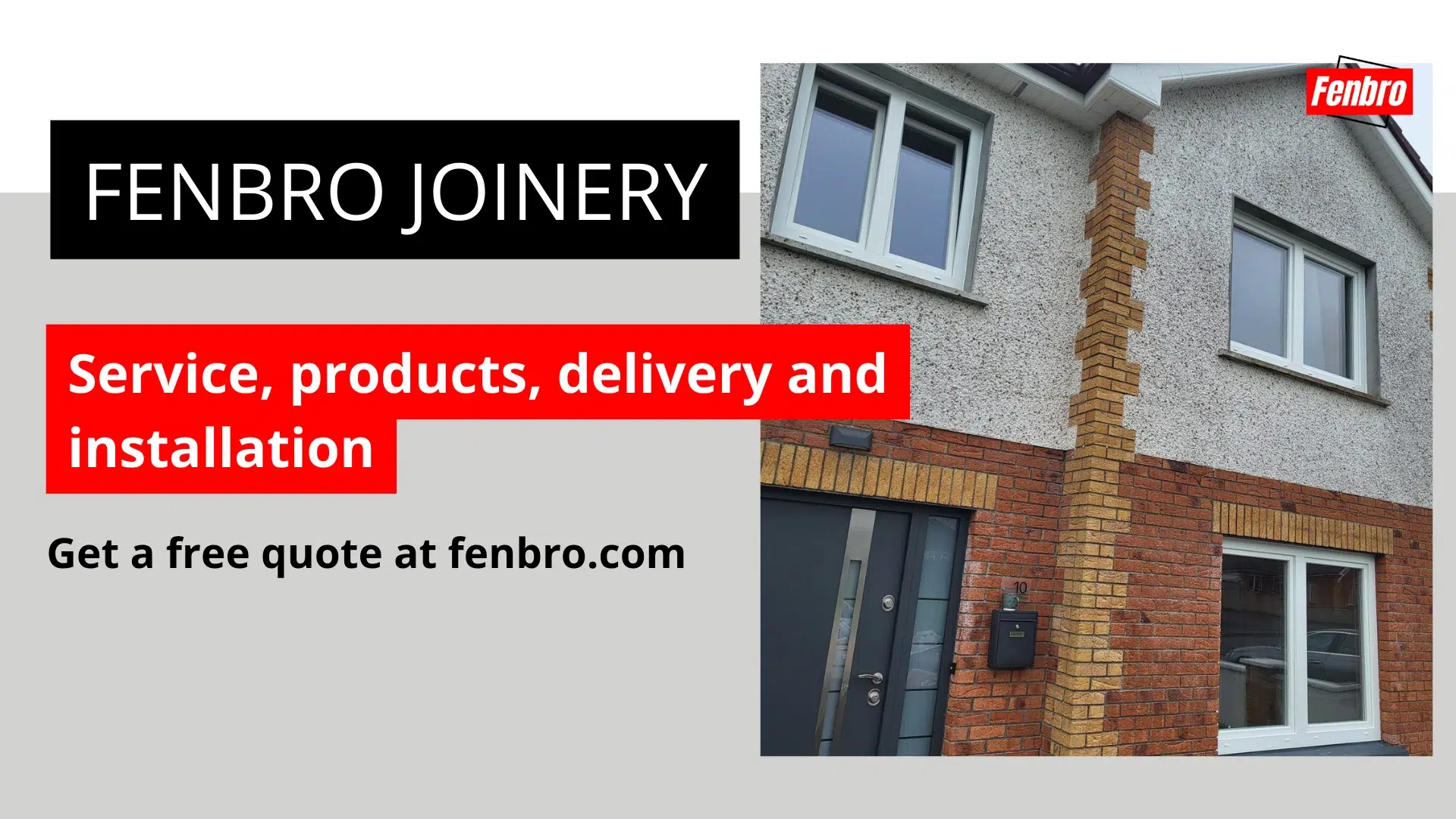The construction industry is continuously evolving, with an increasing focus on sourcing high-quality building materials at competitive prices. In this landscape, Poland has emerged as a frontrunner, offering a vast array of building materials that combine quality, diversity, and cost-effectiveness. This article delves into the process of importing building materials from Poland, providing a comprehensive guide for building material importers, construction companies, and contractors looking to leverage Polish building supplies for their construction projects.
Quality of Polish building materials
Poland has distinguished itself in the global construction materials market through its unwavering commitment to quality. The country’s manufacturers adhere to stringent European Union standards, ensuring that each product, from insulated plasterboard to metal roofing suppliers, meets high-quality benchmarks. This dedication to quality both reflects in the durability and performance of the materials and in their aesthetic appeal and compliance with environmental sustainability standards.
Compared to other countries, Poland offers a unique blend of traditional craftsmanship and modern manufacturing techniques. This combination results in building materials that are both innovative and reliable. Poland is celebrated for its outstanding production of building materials, which are integral to construction projects domestically and garnered international acclaim. For instance, Polish plasterboard is renowned for its superior finish and ease of installation, a testament to the country’s commitment to quality and efficiency in the construction sector. Additionally, the country’s roofing materials, including corrugated metal and EPDM roofing, stand out for their longevity and resilience to extreme weather conditions, ensuring that buildings are safe and sustainable over long periods.
Moreover, Polish joinery, a cornerstone of the nation’s export in the construction materials industry, is particularly well-known for its exceptional quality and craftsmanship. The fenestration products from Poland, such as windows and doors, are lauded for their superior durability, energy efficiency, and innovative designs.
According to an insightful article on Fenbro, which delves into the “Polish joinery phenomenon,” these products exemplify the blending of traditional craftsmanship with modern technology. Polish joinery offers a vast array of styles, from classic to contemporary, catering to diverse aesthetic and functional needs. This remarkable fusion makes Polish windows and doors highly sought after, both for their aesthetic appeal and for their contribution to enhancing the energy efficiency of buildings. The article underscores the reasons behind the global demand for Polish joinery, highlighting its pivotal role in the construction materials sector and how it epitomises Poland’s expertise and innovation in the field.
The recognition of Polish building materials, from plasterboard and roofing to joinery, underlines the country’s prowess in producing high-quality, durable, and aesthetically pleasing construction solutions. These products meet the immediate needs of construction projects, as well as contribute to the long-term sustainability and efficiency of buildings worldwide, solidifying Poland’s position as a key player in the global construction industry.
Wide selection and availability
One of the most compelling reasons to import building materials from Poland is the extensive range of products available. Polish suppliers offer everything from basic construction materials, such as building sand and furring strips, to specialised items like high-quality Armstrong ceiling tiles and various types of insulation (R13, R19, 200 mm loft insulation). This wide selection ensures that importers can find almost everything they need for their construction projects under one roof.
Availability is another key advantage. Thanks to Poland’s robust manufacturing sector and strategic location in Europe, suppliers maintain high stock levels, making certain that materials are readily available to meet the demands of both small and large-scale projects. This accessibility, combined with short lead times, makes Poland an attractive source for construction materials, guaranteeing projects can proceed without unnecessary delays.
Competitive pricing and short lead times
Poland, recognised for its leadership in the global market, particularly in window and door joinery, offers competitive pricing for its building materials. This positioning provides a cost-effective solution for construction projects without compromising on quality. The synergy of efficient production processes, lower labour costs compared to other Western European countries, and a robust local supply chain, stemming from its esteemed position in the industry, allow Polish manufacturers to offer attractive prices to international buyers. As highlighted in the insightful article on Fenbro, Poland’s expertise and innovation in production contribute significantly to its competitive edge.
Short lead times are another significant benefit of sourcing building materials from Poland, a country renowned for its efficiency and quality in the construction sector. The country’s manufacturers have streamlined their production and distribution processes, drawing on a rich heritage of craftsmanship and technological advancement. This enables them to quickly fulfil orders and reduce the waiting time for international shipments, an essential factor for construction projects where delays can lead to increased costs and extended timelines. The agility of Polish suppliers, underscored by their ability to rapidly produce and ship materials, ensures that importers can better plan their projects and minimise the risk of delays. This further reinforces Poland’s status as a leader in the field.
The import process — all you need to know
Importing building materials from Poland involves several key steps, from identifying reliable suppliers to managing logistics and ensuring compliance with customs regulations. This section provides a detailed overview of these processes, securing a smooth and efficient importation experience.
Finding reliable suppliers
The foundation of a successful importation process is establishing a partnership with a trustworthy supplier. Given the vast array of Polish building materials available, identifying the right supplier requires careful research and due diligence. Here are several strategies to find reputable suppliers.
Online research and reviews
Start with a thorough online search. Websites, industry portals, and supplier directories are invaluable resources. Pay particular attention to customer reviews and testimonials, which can provide insights into the reliability and quality of the supplier’s materials.
Social Media and professional forums
Platforms like Facebook, LinkedIn, and specialised construction forums can offer real-world insights and recommendations. Joining Facebook groups dedicated to construction materials or European imports can connect you with peers who have direct experience with Polish suppliers.
Industry recommendations
Leveraging the power of networking can lead to trustworthy recommendations. Reach out to industry contacts or participate in trade shows and webinars focusing on construction materials. These connections often lead to personal endorsements, which are priceless in assessing a supplier’s credibility.
Sample orders
Before committing to large orders, consider placing smaller sample orders to assess the quality of the materials and the supplier’s reliability in delivery and communication. This step can prevent significant investments in partnerships that may not meet your expectations. – unfortunately impossible in case of windows and doors 😉
Navigating transportation and logistics
Navigating transportation and logistics for building materials from Poland to destinations like Ireland and the UK, is streamlined by suppliers like Fenbro. They simplify the process by offering Delivered Duty Paid (DDP) shipping, assuming responsibility for customs, taxes, and duties. This ensures that purchasing joinery from Fenbro is as hassle-free as buying locally, eliminating worries about transportation logistics.
Transporting windows from Poland to other countries involves detailed planning and understanding of customs and VAT regulations. Fenbro simplifies this process for customers by ensuring the safe packaging and transportation of windows, with services that include customs clearance and tax handling. This approach makes importing windows stress-free, mirroring the ease of local purchases. For more details on the comprehensive services offered by Fenbro, including tips on importing and preparing for transport, read in this article.
Mode of transport
The choice between road, sea, or rail freight will depend on the volume of materials, your budget, and delivery timelines. Road freight is flexible and relatively fast for European destinations, while sea freight can be cost-effective for large shipments.
Packaging and handling
Make sure that the materials are properly packaged for international transport to avoid damage. This is especially important for fragile items like vinyl ceiling tiles or tin ceiling tiles.
Customs clearance
Familiarise yourself with the necessary documentation and customs procedures to prevent delays. This may include commercial invoices, packing lists, and certificates of origin. Working with a customs broker or a freight forwarder who has experience with building materials can streamline this process. – or a company offering delivered duty paid (DDP) shipping.
Customs and regulatory compliance
Complying with customs and regulatory requirements is vital when importing building materials from Poland. Each country has its own set of import regulations, tariffs, and standards that must be adhered, i.e. to these listed below.
Tariffs and taxes
Understand the applicable tariffs and taxes for importing building materials into your country. This information is crucial for calculating the total cost of importation.
Standards and regulations
Building materials must meet specific standards and regulations, especially in terms of safety and environmental impact. Ensure that the products comply with the relevant UK & Ireland standards.
Specialised building materials from Poland
Specialised building materials from Poland encompass a wide range of products essential for modern construction, each designed to meet specific architectural and environmental standards. Poland’s contribution to the construction materials industry is substantial, with a particular emphasis on innovation, quality, and sustainability. This commitment is evident across various sectors, from joinery to roofing materials, ensuring that Poland remains at the forefront of supplying essential components for both residential and commercial buildings.
Poland’s construction materials industry shines especially bright in the domain of joinery. The nation’s windows and doors transcend ordinary products to become significant export commodities that blend cutting-edge innovation with traditional craftsmanship.
Polish joinery is renowned for its exceptional quality and durability, offering a diverse range of styles and technologies tailored to enhance energy efficiency and meet aesthetic preferences. This sector is a key pillar of Poland’s contributions to the global construction and design landscape.
Notably, Fenbro stands out in this field, showcasing an exceptional range of windows and doors that emphasise both durability and style. With a strong commitment to quality, Fenbro provides comprehensive services — from consultation to delivery and cooperation with trusted fitting teams across Europe — supported by positive customer feedback. Their extensive product line-up addresses various architectural requirements, from classic to modern designs, demonstrating versatility while prioritising energy efficiency and innovative solutions. This approach has established Fenbro as a leader in the joinery export market.
In addition to joinery, Poland has also made significant strides in the production of specialised roofing materials. These materials are designed to offer superior protection against the elements, durability, and energy efficiency, while also contributing to the aesthetic appeal of buildings. The roofing sector demonstrates the same commitment to quality and innovation found in joinery. It does so with products ranging from traditional clay tiles to modern, lightweight, and eco-friendly options. This diversity ensures that Polish roofing materials can meet the demands of various construction projects, reinforcing Poland’s reputation for excellence in the building materials’ industry.
Roofing materials — from metal roofing to EPDM roofing
Poland’s advancements in roofing materials such as durable metal roofing and waterproof EPDM offer diverse architectural solutions. Noteworthy are:
- Metal roofing — known for weather resistance, available in various colours.
- EPDM roofing — durable synthetic rubber, ideal for flat roofs.
Additional offerings include energy-saving insulation products and a variety of finishing materials:
- Plasterboard — for smooth interior walls and ceilings.
- Ceiling tiles — enhancing aesthetics with noise reduction benefits.
- Cladding — for creative and durable exteriors, in metals to natural stones.
Essentials like building sand and furring strips highlight the comprehensive range available for construction needs.
Cost-benefit analysis of importing from Poland
Importing building materials from Poland can present numerous advantages in terms of cost savings, quality, and variety. However, it’s vital to conduct a thorough cost-benefit analysis to understand the financial implications and strategic benefits fully. This analysis will consider the total cost of import, including transportation and customs, and compare these costs against the quality and pricing of local and other international options.
Calculating the total cost of import
To accurately gauge the financial viability of importing building materials from Poland, several factors must be considered. See the list below.
Product cost
This includes the purchase price of the building materials themselves, which is often lower in Poland due to competitive manufacturing costs.
Transportation expenses
Depending on the chosen mode of transport (road, sea, or rail), these costs can vary significantly. Factors such as the distance, volume of materials, and transportation method impact the overall shipping cost.
Customs and duties
Import duties and taxes are critical components of the total cost. These vary by country and material type, so it’s crucial to research the applicable rates for your specific imports.
Other fees
Additional costs may include insurance, storage, and handling fees, as well as potential costs associated with delays or the need for specialised transportation for delicate materials.
Conclusion
Importing building materials from Poland presents a compelling opportunity for construction projects in Ireland, the UK, and beyond. The combination of high-quality materials, competitive pricing, and a wide selection of products makes Poland an attractive source for importers. By understanding the import process, including finding reliable suppliers, managing logistics, and ensuring regulatory compliance, businesses can capitalise on the benefits offered by the Polish construction materials industry.




